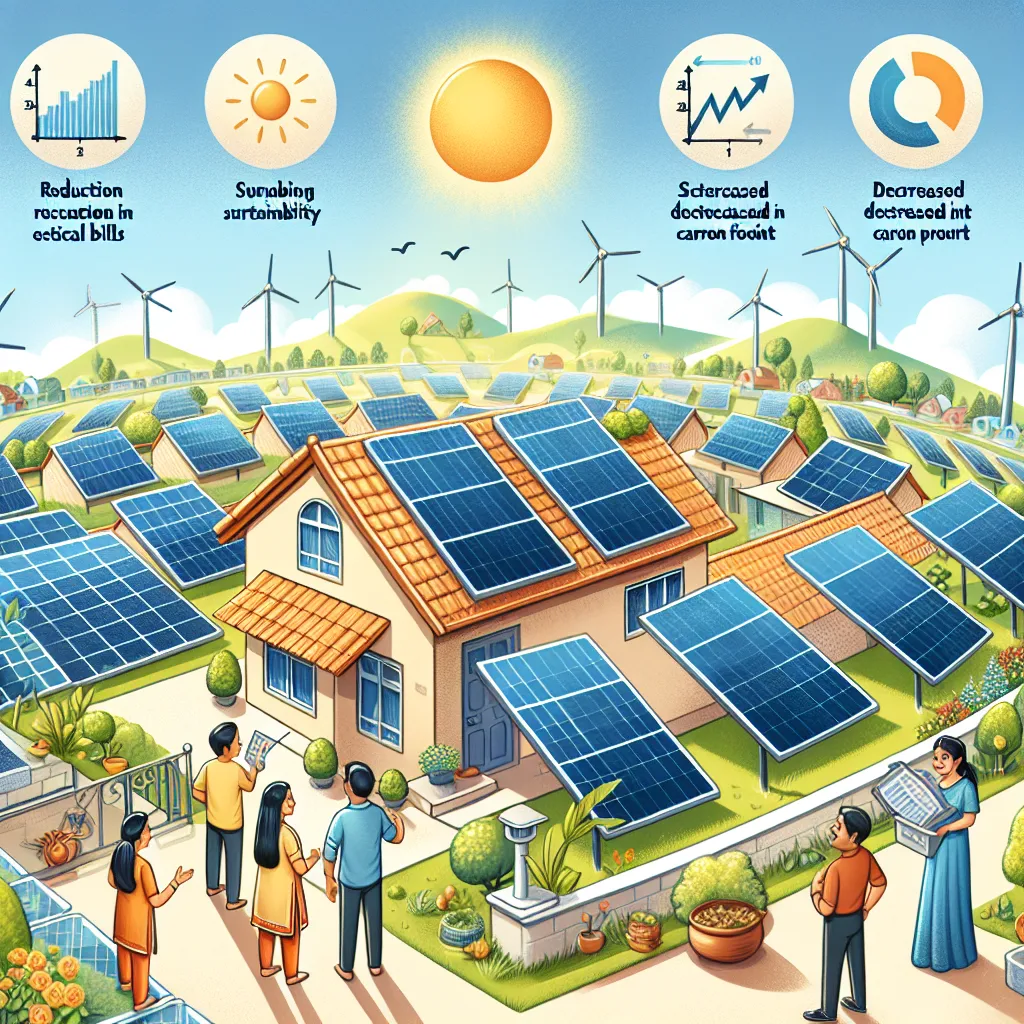Solar Panel Cost in India: Factors, Trends, and Benefits
Solar Panel Cost in India: Factors, Trends, and Benefits
Solar panels are rapidly gaining popularity in India as a sustainable and cost-effective solution for generating electricity. With increasing concerns about climate change and rising electricity prices, many individuals and businesses are considering installing solar panels to reduce their carbon footprint and save on energy costs in the long run. However, before investing in solar panels, it is crucial to understand the factors that affect their cost, the current trends in the Indian market, and the benefits they offer.
Factors Affecting Solar Panel Cost in India
The cost of solar panels in India can vary significantly depending on various factors. Understanding these factors will help you make an informed decision when planning to install solar panels.
1. Size and Capacity
The size and capacity of solar panels directly impact their cost. Larger panels with higher capacity are more expensive but can generate more electricity. The size of the solar panel system required for your energy needs will determine the overall cost.
2. Quality and Technology
The quality and technology used in solar panels play a crucial role in their cost. High-quality panels with advanced technology tend to be more expensive but offer better performance and durability. It is important to consider the long-term benefits when choosing the quality and technology of solar panels.
3. Installation and Mounting
The cost of installation and mounting of solar panels should also be taken into account. This includes labor costs, permits, and any additional equipment required for installation. Hiring a professional installer ensures proper installation, maximizing the efficiency and lifespan of the solar panels.
4. Incentives and Subsidies
The Indian government offers various incentives and subsidies to promote the adoption of solar energy. These incentives can significantly reduce the cost of solar panels. It is essential to research and understand the available subsidies and incentives in your region to take advantage of cost savings.
Trends in Solar Panel Cost in India
The cost of solar panels in India has been steadily decreasing over the years, making it a more affordable option for many. Several factors contribute to this downward trend.
1. Technological Advancements
The solar industry has witnessed significant technological advancements, leading to increased efficiency and reduced manufacturing costs. Innovations in panel design, materials, and manufacturing processes have contributed to the decrease in solar panel prices in India.
2. Economies of Scale
As the demand for solar panels has grown, the manufacturing scale has also increased. This has resulted in economies of scale, enabling manufacturers to produce solar panels more efficiently and at lower costs. The increased competition among manufacturers has further driven down prices.
3. Government Initiatives
The Indian government has been actively promoting the use of solar energy through various initiatives. These initiatives, such as the Jawaharlal Nehru National Solar Mission, aim to increase renewable energy capacity and reduce dependence on fossil fuels. Government support has helped reduce the cost of solar panels by providing subsidies and tax benefits.

4. Declining Solar Component Prices
The prices of solar components, such as inverters, batteries, and mounting systems, have also decreased over time. These components are essential for a solar panel system and their reduced cost contributes to the overall decrease in solar panel prices.
Benefits of Installing Solar Panels in India
Investing in solar panels in India comes with numerous benefits, making it a wise choice for individuals and businesses alike.
1. Cost Savings
By harnessing solar energy, you can significantly reduce your monthly electricity bills. Solar panels generate electricity for free, allowing you to save on your energy costs in the long run. Furthermore, the declining cost of solar panels and the available government incentives make it a financially viable option.
2. Environmental Impact
Switching to solar energy helps reduce greenhouse gas emissions, promoting a cleaner and greener environment. Solar panels produce electricity without emitting harmful pollutants, contributing to combating climate change and improving air quality.
3. Energy Independence
Installing solar panels provides you with energy independence by generating your own electricity. This reduces your reliance on the power grid, especially during power outages or fluctuations. With solar energy, you have a reliable and consistent power source.
4. Long-Term Investment
Solar panels have a long lifespan, typically ranging from 25 to 30 years. Installing solar panels is a long-term investment that offers a significant return on investment over time. Once you recover the initial installation cost, the electricity generated by solar panels is virtually free.
5. Increased Property Value
Properties equipped with solar panels have higher resale value. Potential buyers are attracted to homes or businesses that offer reduced energy costs and a sustainable energy source. Installing solar panels not only benefits you financially but also adds value to your property.
6. Job Creation
The growing solar industry in India has led to the creation of numerous job opportunities. From manufacturing to installation and maintenance, solar panels contribute to the growth of the renewable energy sector, providing employment opportunities across the country.
Conclusion
Solar panel cost in India is influenced by factors such as size, quality, installation, and available incentives. However, the overall trend in solar panel prices is downward due to technological advancements, economies of scale, government initiatives, and declining component prices. Installing solar panels in India offers a range of benefits, including cost savings, environmental impact, energy independence, long-term investment, increased property value, and job creation. As the country continues its focus on renewable energy, solar panels are becoming an increasingly attractive option for individuals and businesses alike.
